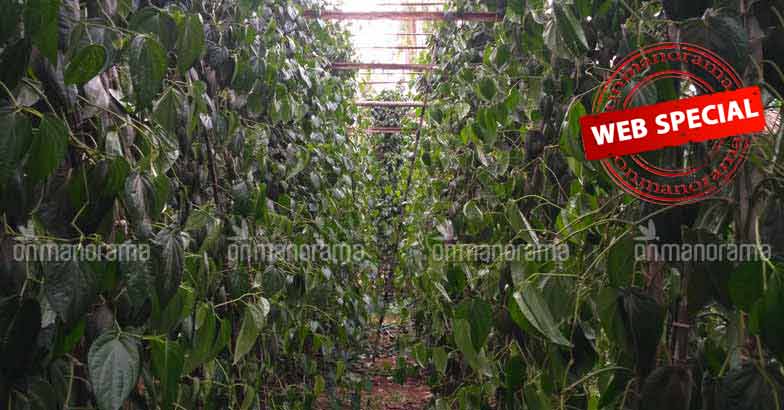Tirur: This is the story of a quintessential leaf – the Tirur betel leaf that spurred trade, boosted ties, and provided a livelihood to thousands in an around this small town for more than a century.
Now, after tensions escalated with Pakistan, betel trade is on the wane in this small town, just 41 km south of Kozhikode, a major trade center since time immemorial.
The Pak connection
So, what is the Pakistan connection to Tirur's famous betel leaves, one may wonder. Tirur betel leaves were in enormous demand in Pakistan, with traders from there even visiting their suppliers here even in the early years of the millennium.
But as Indo-Pak tensions escalated and ties soured, the lifeline of that rare camaraderie has shrunk. Betel trade to Pakistan continued through various avenues. It was mainly routed through the Gulf region to Paan Mandis in Pakistan, where the size and quality of Tirur betel is adored.
Tirur betel leaves generated huge interest in various north Indian markets also. And the flourishing trade had even prompted authorities to establish a post office in Paan Bazaar, an exclusive market place for betel leaves, in Tirur.
The post office was established to handle a flurry of communication between betel traders including placing orders for consignments.
But after that the century-old trade was hit by a host of reasons and key among them was the strained Indo-Pak ties in the aftermath of the Pathankot terror attacks.
Shrinking betel trade
As trade waned, the authorities wound up the post office at Paan Bazaar. And that is reflected in the statement of Hassan, a trader in Tirur. “Earlier nearly 2.5 tonnes of betel leaves were exported daily. The market place worked overnight and even teashops catering to traders and laborers in Paan Bazaar worked overnight,” he said. Not anymore.
Hassan even refuses to provide statistics about the trade now. “It is insignificant,” he said.
The popularity of paan masala was also a factor that hit betel trade. The betel cultivation in Tirur was mostly based in Chambra, Thuvakkad, Velathoor, Edarikkad. Betel cultivation is mostly done during the months ahead of the monsoon, but, as years passed and water sources dried up during the scorching summer, betel cultivation again took a knock.
A steady supply of water is vital for betel cultivation, farmers say. But in the aftermath of the Pathankot terror attack, the trade took another deadly blow. As tensions escalated and India mounted pressure, Pak retaliated with an additional 15 percent hike in tax on betel leaf exports from India, among other curbs.
That sort of shrunk the trade to minuscule proportions. And though trade was rerouted through the Gulf, transportation costs soared. Spiraling freight charges also made domestic trade nonviable.
The production and export of betel leaves from Sri Lanka could also have had an impact on trade and as demand waned, cultivation also took a backseat.
Betel leaves used to fetch Rs 100 for a pack (100 leaves) once. Now, if we get even Rs 35, fair enough,” Moin, a small-time farmer at Kodur, laments.
The gradual decline in cultivation as well as trade is evident. Paan Bazaar, once a teeming market of betel leaves, has only three wholesale traders now.
Traders like Hassan and farmers like Moin may not have much options to carry on with their vocation unless divine intervention puts the flavor back in the once-famous Tirur betel trade.

